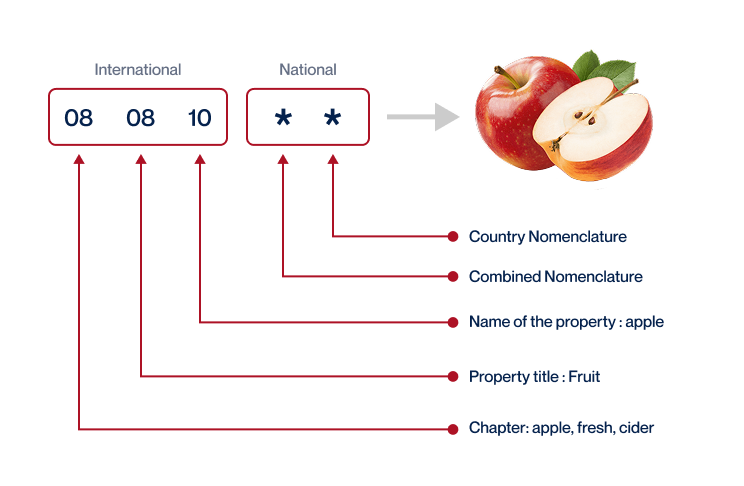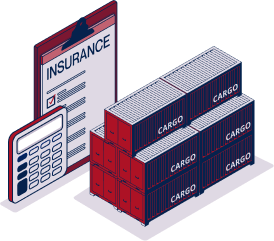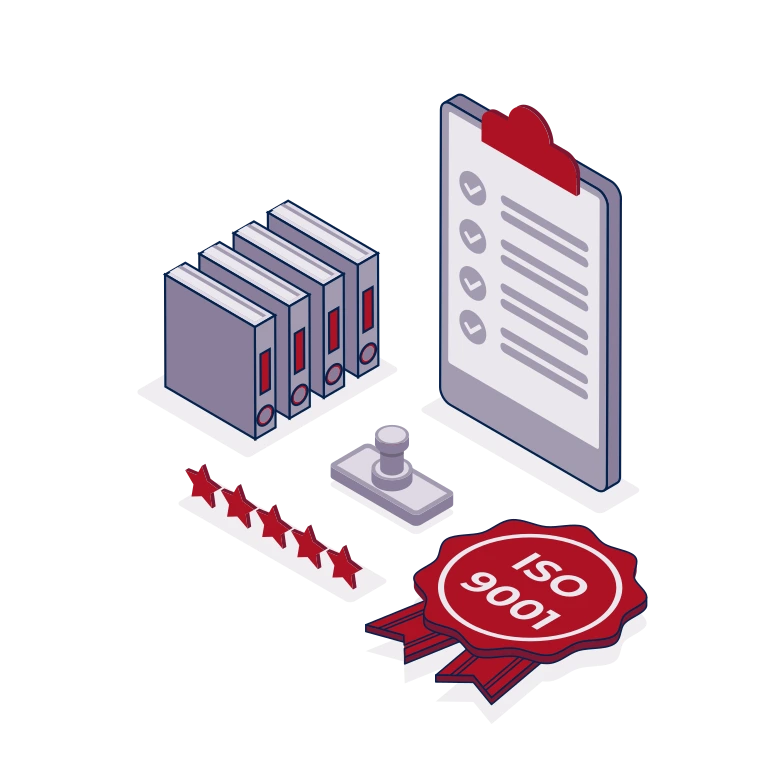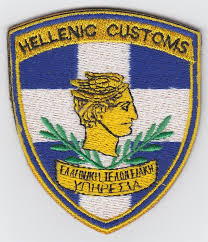Freight Shipping between Malaysia and Greece | Rates – Transit times – Duties and Taxes
Picture yourself neck-deep in baklava and durians, and you've got a sense of how overwhelming shipping goods between Malaysia and Greece can be! There's simply so much to decipher: from understanding the shipping rates, transit times, to customs regulations.
Throughout this guide, we'll demystify the process of sending freight from Malaysia to Greece, highlighting the options you have, be it air, sea, road, or rail. We'll delve into customs duties, taxes, and regulations that apply and offer expert advice suited for businesses venturing in these markets.
If the process still feels overwhelming, let DocShipper handle it for you! We navigate the complex world of international freight forwarding, transforming each challenge into a seamless and successful venture for your business.
Which are the different modes of transportation between Malaysia and Greece?
Choosing the right way to ship goods from bustling Kuala Lumpur to ancient Athens can feel like solving a puzzle. Consider the distance: crossing oceans, conquering land, and bypassing numerous borders. Air and sea transport emerge as the suited contenders. The choice rests on specifics: the volume of your goods, urgency, budget, and ecological concerns. If it's a box of satay skewers for a Greek food fest next week, a jet might be your best bet. A container of palm oil, however? Sailing the Mediterranean might be more your style. It’s all about fitting the pieces together. A well-chosen method delivers success.
Need help with your shipment?
Need assistance with your shipment? Dont hesitate to contact us even for a simple question. Choose the option that suits you
Live chat with an expert Chat on WhatsApp Free Quote 24hHow can DocShipper help you

Sea freight between Malaysia and Greece
Ocean shipping between Malaysia and Greece: a journey that spans continents and cultures, tying together the engine rooms of Southeast Asian manufacturing with the vibrant European marketplace.
This essential trade route runs between Malaysia’s bustling Port Klang and Greece’s pivotal hub, the Port of Piraeus – two vital lifelines in the global freight network.
Although sea freight might test your patience with its slow pace, for businesses shipping high-volume goods, it’s a wallet-friendly lifeline.
Picture this: an amateur baker trying to whip up a complex French dessert without a recipe guide – an overwhelming task right? That’s pretty much how shippers feel when tackling the logistical maze between Malaysia and Greece.
Many fall into pitfalls and unforeseen difficulties, turning what should be a simple process into a logistical nightmare. But not all hope is lost! Imagine the baker getting a detailed recipe guide – with clear steps, tips, and even a troubleshooting section!
That’s precisely what you’ll find in this Destination Guide as we unravel the best practices and insider tricks to simplify your shipping journey. So, get ready to master the art of shipping, just as a chef perfects a chocolat gâteau!
Main shipping ports in Malaysia
Port Klang
Location and Volume: Situated in the district of Klang, Selangor, Port Klang now ranks as Malaysia’s busiest port and serves as a core gateway to the trade-rich areas of South East Asia. It handles over 12 million TEU.
Key Trading Partners and Strategic Importance: Port Klang has key trade linkages with China, Singapore, Indonesia, and USA. It’s the linchpin for Malaysia’s export industries, contributing significantly to economy.
Context for Businesses: If you’re planning on reaching markets in East Asia and the ASEAN region, Port Klang can serve as an advantageous logistics point, thanks to its extensive connections and thriving commercial activity.
Port of Tanjung Pelepas
Location and Volume: Located at the western end of Johor, the Port of Tanjung Pelepas is the second largest port of Malaysia, handling nearly 9 million TEU.
Key Trading Partners and Strategic Importance: The port has established trade relations with Singapore, China, Indonesia, and United States. It’s celebrated as one of fast-growing container ports with modern infrastructure.
Context for Businesses: If you’re focusing on swift transits and effective shipping connections, Tanjung Pelepas might be perfect due to its advanced facilities and growing prominence on major shipping lines.
Penang Port
Location and Volume: Penang Port, situated in the state of Penang, is Malaysia’s oldest and longest serving port, moving approximately 1.5 million TEU.
Key Trading Partners and Strategic Importance: Penang Port’s largest trade partners are China, Singapore, and Thailand. It’s strategically significant as a major shipping route between the Indian Ocean and the Pacific Ocean.
Context for Businesses: If your trade leans more towards northbound routes or targets markets in Thailand and North Asia, Penang Port can play a vital role in your logistics plan, due to its geographical advantage.
Main shipping ports in Greece
Port of Piraeus
Location and Volume: Located in the capital city, Athens, the Port of Piraeus is the largest port in Greece and the busiest in the Eastern Mediterranean. It handles over 20 million TEUs annually.
Key Trading Partners and Strategic Importance: It serves as a gateway to the EU, given Greece’s membership in the bloc, and has strong trading ties with countries in the Middle East, Eastern Europe, and Asia. A significant investor in the port is COSCO from China, adding to its strategic importance.
Context for Businesses: If you have trade interests spread across Asia and EU, the Port of Piraeus is an efficient connection between these markets due to its significant marine infrastructure and strategic location.
Thessaloniki Port
Location and Volume: The Port of Thessaloniki is located at the crossroad of multiple international trade routes in Northern Greece. The port handles a volume of more than 6 million TEUs annually.
Key Trading Partners and Strategic Importance: It’s not only a critical point for Greece’s trade with the Balkans and Turkey but also features vital rail connections that extend its reach further into Europe.
Context for Businesses: For businesses with supply chains extending into Southeast Europe and Turkey, Thessaloniki’s geographic position and logistics advantages make it a likely point of entry or departure.
Port of Heraklion
Location and Volume: The Port of Heraklion is situated at the center of the South Aegean and routes, having a shipping volume of approximately 2 million TEUs annually.
Key Trading Partners and Strategic Importance: Given its proximity to North Africa and Middle East, it’s understandably a central hub for those markets. Additionally, it also serves numerous Greek islands, making it a key domestic hub.
Context for Businesses: If your business activities involve North Africa, the Middle East, or even the Greek domestic market, the Port of Heraklion can serve as a critical juncture in your shipping strategy.
Port of Volos
Location and Volume: Located midway between Athens and Thessaloniki, the Port of Volos has a shipping volume of about 1.2 million TEUs annually.
Key Trading Partners and Strategic Importance: Its key trading partners mainly include other EU countries, Asia, and the USA. It is also an important gateway for goods originating from or headed to Central Europe.
Context for Businesses: If your trading needs are primarily within the EU, Asia, or the USA, the Port of Volos with its routes connecting these regions is likely a fitting choice for your shipping strategy.
Port of Patras
Location and Volume: The Port of Patras is located on the western coast of the country, handling over 800,000 TEUs annually.
Key Trading Partners and Strategic Importance: Given its location, Italy serves as a principal trading partner, but the port also maintains links with Spain and a host of Northern European countries.
Context for Businesses: If you need a dependable route to Italy and other Northern European markets, opting for the Port of Patras could ensure a reliable and efficient means of reaching these destinations.
Port of Igoumenitsa
Location and Volume: The Port of Igoumenitsa is located on the northwestern coast of Greece with a shipping volume of over 500,000 TEUs annually.
Key Trading Partners and Strategic Importance: It maintains a strong maritime connection with Italy and serves as a transport link towards the European corridor, with Turkey also being a significant trading partner.
Context for Businesses: If your business is heavily involved with Turkey or uses transportation routes into deeper parts of Europe, consider integrating the Port of Igoumenitsa into your shipping strategy due to its strategic position.
Should I choose FCL or LCL when shipping between Malaysia and Greece?
When shipping goods between Malaysia and Greece, making a savvy choice between Full Container Load (FCL) and Less than Container Load (LCL) is imperative. This decision directly influences your freight costs, delivery timelines, and, ultimately, your bottom line.
Understanding the whys and hows of these sea freight options will arm you with the knowledge to optimize your shipping strategy. Get ready to unlock the potential of smart freight planning as you embark on this learning journey. After all, being well-informed will help your business navigate the high seas of international logistics more effectively.
Full container load (FCL)
Definition: FCL or Full Container Load is a type of ocean freight where a shipper rents an entire container. As your fcl shipping quote would be for a full 20’ft or 40’ft container, this tends to be more cost-effective for high-volume shipments.
When to Use: Opt for FCL container shipping when your cargo exceeds 13/14/15 CBM. It's not only pocket-friendly for high volume shipments but also offers enhanced safety, as the container is sealed from origin to destination.
Example: If you are sending a large consignment of electronics from Malaysia to Greece that occupies more than 15 CBM, FCL would be your go-to choice. Your goods would be packed in one dedicated 20’ft or 40’ft container. This also reduces risks associated with sharing a container with different shippers.
Cost Implications: While securing an fcl shipping quote might initially seem a steep cost, if you're shipping large volumes, it proves beneficial. You pay for the container, regardless of whether it's full or not. So, shipping more goods spreads out the cost, reducing the rate per unit compared to LCL or Less than Container Load shipments.
Less container load (LCL)
Definition: LCL (Less Than Container Load) shipping allows multiple shippers to share space in a single container. It's a reliable method of shipping smaller volumes of goods and plays a significant part within the global supply chains.
When to Use: You might want to utilize LCL shipping when the cargo volume is less than approximately 15 cubic meters. It offers more flexibility since you only pay for the space you use, making it a cost-effective choice for lower-volume shipments.
Example: Suppose you own a small business in Malaysia that sells handmade furniture. You've received an order in Greece for four tables and eight chairs—a shipment that measures around 10 cubic meters. Opting for LCL shipping means you only pay for that 10 cubic meters in the container, leaving the remaining space for other businesses' freight.
Cost Implications: While LCL freight presents short-term savings for smaller shipments, larger shipments could be more expensive than FCL (Full Container Load) due to the higher administrative and handling costs per cubic meter. Freight consolidation also means that your cargo might take a longer transit time, so factor this in when planning your shipment.
Hassle-free shipping
Understanding the most cost-effective way to ship your goods from Malaysia to Greece can be tricky, but not with DocShipper. Our freight forwarders simplify the complex world of logistics for your business, helping you choose between consolidation or full container, based on factors like volume, budget, and delivery lead times. Trust our ocean freight experts to navigate the best path for you. Ready for hassle-free cargo shipping? Contact us now for a free, no-obligation estimate!
Sea freight between Malaysia and Greece usually takes an average of 20-30 days. However, keep in mind that transit times are influenced by several factors including the specific ports being used, the weight, and the nature of your cargo.
To get the most accurate estimate, we recommend reaching out to a freight forwarder, like DocShipper, who can provide a tailored quote.
Below is a text-only table providing average transit times between the 4 major ports in the two countries:
| Port of Malaysia | Port of Greece | Average Transit Time (days) |
| Port of Klang | Port of Piraeus | 22 |
| Port of Johor | Port of Thessaloniki | 28 |
| Port of Penang | Port of Piraeus | 23 |
| Port of Kuantan | Port of Thessaloniki | 25 |
*Please note these times are averages and your actual transit time may vary due to factors outlined above.
How much does it cost to ship a container between Malaysia and Greece?
Determining the exact ocean freight rates between Malaysia and Greece can be as complex as plotting a seafarer’s course. Numerous factors, including Point of Loading, Destination, the carrier, the nature of your goods, and monthly market fluctuations, play a pivotal role in this calculation.
Hence, precise figures hover more in the domain of estimates than fixed numbers. Nevertheless, rest assured that we navigate these turbulent waters with an experienced hand. By quoting on a case-by-case basis, our shipping specialists ensure you’re provided with the most competitive shipping cost tailored to your specific needs.
Trust us to weigh the anchor and guide you through your shipping quests.
Special transportation services
Out of Gauge (OOG) Container
Definition: An OOG container is used for cargo that exceeds the standard container dimensions, hence the term ‘Out of gauge cargo’.
Suitable for: These shipping options are ideal for large, heavy items like machinery, industrial equipment, and oversized commodities.
Examples: This includes goods like turbines, forklifts, or even boats that are too big to fit inside regular containers.
Why it might be the best choice for you: If your business deals in oversized or heavy goods, OOG shipping ensures safe, secure transportation from Malaysia to Greece.
Break Bulk
Definition: Break bulk refers to the method of shipping goods individually, on pallets, in crates, or in drums rather than containerization.
Suitable for: Any cargo that cannot be containerized due to its size, weight, or quantity fits perfectly into the break bulk category.
Examples: Cargo such as large construction materials, iron beams, timber logs or machinery parts can effectively be shipped as break bulk.
Why it might be the best choice for you: For businesses shipping non-standard goods in massive quantities, break bulk offers a great solution without the constraint of container dimensions.
Dry Bulk
Definition: Dry bulk cargo is a type of bulk cargo that is packed directly into a vessel’s hold and transported in large, loose quantities.
Suitable for: This method is perfect for homogeneous, unpackaged, loose cargo load commodities.
Examples: Items like grain, coal, steel, or cement are commonly shipped using Dry bulk.
Why it might be the best choice for you: If your business involves shipping large, uniform commodities between Malaysia and Greece, choose Dry bulk for its cost-effectiveness and efficient handling.
Roll-on/Roll-off (Ro-Ro)
Definition: Roll-on/Roll-off, or ro-ro vessels, use built-in ramps to allow wheeled cargo like cars, trucks, and heavy equipment to be driven on and off the ship.
Suitable for: Goods that are on wheels or can be placed on a wheeled platform are suitable for Ro-Ro vessels.
Examples: Businesses transporting automobiles, trucks, trailers, and heavy equipment like cranes or tractors will find this method significantly beneficial.
Why it might be the best choice for you: For every business in the vehicle or heavy machinery industry, Ro-Ro offers the easiest and most straightforward shipping option from Malaysia to Greece.
Reefer Containers
Definition: Reefer containers are refrigerated containers used to transport temperature-sensitive goods.
Suitable for: They’re perfect for perishable goods such as food (fruit, vegetables, meat, etc.), beverages, medical products, and more.
Examples: A business dealing in fresh seafood shipment from Malaysia to Greece or pharmaceuticals will find reefer containers indispensable.
Why it might be the best choice for you: In case your business requires maintaining certain temperature levels during shipping, Reefer containers will ensure safe delivery of your temperature-sensitive goods.
At DocShipper, we’re ready to partner with you and help you make the best logistics decisions for your business between Malaysia and Greece. Contact us today to receive a free shipping quote in less than 24 hours.
Air freight between Malaysia and Greece
Air freight between Malaysia and Greece is like a well-orchestrated symphony ensuring speedy and reliable exchanges of small, high-value goods. Imagine the accelerated jet journey of an intricate timepiece or delicate medical equipment, offered by air cargo’s prompt deliveries and stringent safety protocols.
However, the song of air freight often hits a dissonant note when shippers overlook certain factors. It’s like inviting your friends for a fancy dinner but forgetting to account for the lobster’s weight on your budget. Not using the correct weight formula when estimating shipping costs might cause your freight bill to balloon unexpectedly.
When making the leap from land or sea to air, new shippers frequently trip over guidelines and jargon, incurring added costs. Avoiding these potholes on your air freight journey is essential, and that’s what this part is all about!
Air Cargo vs Express Air Freight: How should I ship?
Sifting through options for shipping between Malaysia and Greece? We understand it can feel like a daunting task.
Let’s simplify it with a quick breakdown: Air cargo refers to your goods hitching a ride on a commercial airline, while express air freight gets your shipment aboard its very own dedicated plane.
Stick around, and we’ll help you figure out which option caters best to your unique business needs.
Should I choose Air Cargo between Malaysia and Greece?
If you’re considering Air cargo between Malaysia and Greece, know that this is a cost-effective and reliable option, especially for cargo over 100kg/220lbs.
Fixed schedules might mean a longer transit time, but the consistency is evident.
Top international airlines like Malaysian Airlines and Aegean Airlines offer dedicated air freight services.
These airlines are established players in air cargo, promising reliable operations that align well with your budgetary requirements. It’s worth investigating their offerings; the value might outweigh the increased transit times.

Should I choose Express Air Freight between Malaysia and Greece?
Choosing Express Air Freight for shipments from Malaysia to Greece can be a strategic decision. This service, provided by top couriers like FedEx, UPS, or DHL, uses exclusive cargo planes, boosting the speed of your freight.
If your cargo is under 1 CBM, or weighs 100/150 kg (220/330 lbs), this option could be ideal as it guarantees swift, reliable delivery. By leveraging Express Air Freight, you’ll be ensuring the fast turnaround of your goods while benefiting from the expertise of these global courier companies.

Main international airports in Malaysia
Kuala Lumpur International Airport
Cargo Volume: Annually, KLIA handles more than 1.2 million metric tons of cargo.
Key Trading Partners: Major trading partners include China, USA, Indonesia, Singapore, and Japan.
Strategic Importance: Being one of the busiest airports in Southeast Asia, KLIA is widely recognized for its well-connected network, servicing over 100 airlines and connecting to more than 50 countries globally.
Notable Features: Housing a state-of-the-art Advanced Cargo Centre, the airport has notable features like pallet screening machines, built-in house and unit load device (ULD) stations with an automated storage and retrieval system. Plus, it has a dedicated perishable cargo complex.
For Your Business: If you’re shipping perishable goods or need reliable, extensive global connectivity, KLIA could be a strategic choice for your business’s shipping needs.
Penang International Airport
Cargo Volume: Penang International manages over 150 thousand metric tons of cargo yearly.
Key Trading Partners: The primary trade partners comprise China, Japan, USA, Singapore, and Australia.
Strategic Importance: As the third busiest airport in Malaysia, it is strategically located near the Bayan Lepas Free Industrial Zone, making it an attractive shipping point for electronics and high-tech industries.
Notable Features: It possesses a cargo complex with cold storage facilities alongside express courier handling and transshipment facilities.
For Your Business: If your business handles electronic, high-tech, or perishable goods and needs excellent accessibility to industrial zones, consider Penang International for your shipping needs.
Senai International Airport
Cargo Volume: The airport manages over 10 thousand metric tons of cargo every year.
Key Trading Partners: Notable trade partners include Singapore, Thailand, Indonesia, and China.
Strategic Importance: Senai International serves as an industrial gateway and logistics hub to southern Peninsular Malaysia, offering air, sea, and land connectivity.
Notable Features: It features a Cargo Centre equipped with a range of equipment for the safe management of cargo and access to Free Trade Zones.
For Your Business: If your businesses seek integrated logistics and easy access to Free Trade Zones, Senai International would align well with your cargo requirements.
Kota Kinabalu International Airport
Cargo Volume: This airport handles around 15 thousand metric tons of cargo annually.
Key Trading Partners: Main trading partners include China, Taiwan, Singapore, South Korea, and Japan.
Strategic Importance: Kota Kinabalu serves as a crucial connection between East and West Malaysia and services a large number of airlines, enhancing its appeal as a shipping point.
Notable Features: The airport includes modern cargo facilities and retail spaces spread across its two terminals.
For Your Business: If you’re looking for a robust connection within Malaysia and direct links to Asian markets, Kota Kinabalu might play a substantial role in your shipping strategy.
Kuching International Airport
Cargo Volume: Kuching International handles over 22 thousand metric tons of cargo each year.
Key Trading Partners: The main trading partners include Singapore, China, Australia, and Japan.
Strategic Importance: As the gateway to Sarawak, it is a crucial logistics point for East Malaysia.
Notable Features: The airport offers a modern cargo terminal with many airline offices onsite.
For Your Business: If you’re doing business in East Malaysia and within Borneo, Kuching International would be a viable solution for your logistics and shipping needs.
Main international airports in Greece
Athens International Airport
Cargo Volume: Athens International Airport, also referred to as Eleftherios Venizelos, moved just over 100,000 tonnes a year on average in the last years.
Key Trading Partners: The airport’s main trade partners include countries from the European Union, the Middle East, Asia, and North America.
Strategic Importance: As the largest airport in Greece, Athens International is a significant portal for businesses looking to access the European, Asian, and North Africa market. It’s a key hub for DHL Express, FedEx Express, and UPS Airlines.
Notable Features: Athens airport provides extensive air cargo services including a fully automated cargo terminal and dedicated cargo aircraft parking.
For Your Business: Consider Athens International if your business reaches customers across different continents. With high frequencies to major world cities and efficient customs processes, faster delivery times can be achieved than via sea freight.
Thessaloniki Airport Makedonia
Cargo Volume: The airport processed around 20,000 tonnes of cargo during the last three years on average.
Key Trading Partners: The primary trading partners are countries in the European Union, Balkans, the UK, and North America.
Strategic Importance: Thessaloniki Airport serves as the main airport in Northern Greece and the wider Balkan area. It’s a key hub for major shipping companies such as DHL, FedEx, and UPS.
Notable Features: The airport offers dedicated cargo services with modern facilities including warehousing, cold storage, and customs facilities.
For Your Business: Thessaloniki Airport could be a viable choice if your shipping destinations are primarily within the EU and Balkans. Its strategic location and excellent road links could reduce domestic distribution costs and times.
Heraklion International Airport
Cargo Volume: During the last years, Heraklion International Airport moved approximately 10,000 tonnes of cargo annually.
Key Trading Partners: The top trading partners are predominantly countries in the European Union, the Middle East, and North Africa.
Strategic Importance: Being located on the island of Crete, the airport serves as a gateway to the southern part of the country and the Mediterranean.
Notable Features: Despite being smaller than the other major Greek airports, Heraklion offers a variety of cargo management services and has direct highway access for faster domestic distribution.
For Your Business: With its access to the Southern Greek and Mediterranean markets, Heraklion International Airport would be a beneficial choice for businesses shipping goods to these regions. Its smaller size could lead to reduced waiting times and faster processing.
How long does air freight take between Malaysia and Greece?
Shipping goods between Malaysia and Greece through air freight usually averages around 4-6 days.
However, bear in mind that transit time heavily depends on factors like the specific airport of origin and destination, the weight, and type of goods being transported.
Therefore, these times could fluctuate. For a precise and more custom-tailored timeline, it’s advised to reach out to a freight forwarder like DocShipper.
How much does it cost to ship a parcel between Malaysia and Greece with air freight?
The cost of air freight between Malaysia and Greece widely varies, usually within €5-€20 per kg.
Such variations depend on certain factors including distance from departure and arrival airports, the parcel’s dimensions, weight, and the nature of goods. As every shipment is unique, our expert team will work collaboratively with you to offer customized rates, aiming to provide the best value for your specific needs.
It’s time to enjoy hassle-free air freight with us – contact us today and receive a free quote within just 24 hours.
What is the difference between volumetric and gross weight?
Sure! Gross weight refers to the actual physical weight of a shipment, including all packaging. Volumetric weight, on the other hand, accounts for the overall size of the shipment, not just its actual weight. These may be simple definitions but they play a pivotal role in air freight shipping.
Calculating gross weight in air cargo is straightforward—it’s the weight of the shipment in its entirety, measured in kilograms. For example, if you have a package that physically weighs 15kg, that is its gross weight.
The volumetric weight is calculated differently, using the formula: (Length x Width x Height in centimeters) / 6000. Let’s say, for the same package, dimensions are 50cmx40cmx30cm. To find out our volumetric weight, we’ll multiply these dimensions together, giving us 60000 cubic cm, then divide by the factor 6000, giving us a volumetric weight of 10kg.
Converting these weights into pounds for those more familiar with the imperial system: gross weight 15kg becomes 33lbs, and volumetric weight 10kg becomes 22lbs.
Why is this important? Freight charges in air shipment are determined based on whichever is higher between the gross weight and the volumetric weight.
This procedure, sometimes known as ‘chargeable weight’, ensures transporters charge fairly for their service, accounting for both the weight and space taken by packages.
For our example, since the gross weight (15kg) is higher than the volumetric weight (10kg), the freight charges would be calculated based on the gross weight (15kg or 33lbs).

Door to door between Malaysia and Greece
Unpacking the mysteries of international Door to Door shipping, this method ensures your goods journey from Malaysia straight to any location in Greece, without a hitch.
It’s all about hassle-free logistics, offering speed, convenience, and peace of mind. So, why not let the professionals handle it from start to finish? Let’s dive in!
Overview – Door to Door
Shipping goods from Malaysia to Greece? The complexities of international logistics can make it daunting.
That’s where door-to-door shipping shines, offering a stress-free solution. This popular service, as loved by our clients at DocShipper, tackles obstacles like customs clearance, consolidating your shipping operations into one smooth, simplified process.
Although costlier, it eradicates numerous, worrisome touchpoints, reducing room for error.
By offsetting challenges with its many benefits, door-to-door may just be the ideal logistics solution for your peace of mind. Let’s dive in and decode this process together.
Why should I use a Door to Door service between Malaysia and Greece?
Ever thought logistics could be as stress-free as enjoying a Greek gyros on a sunny beach in Mykonos? Boom! Door-to-Door service between Malaysia and Greece is your answer. Let’s unpack why.
- Stress-Free Logistics: Just like easy breezy island vibes, Door-to-Door service takes the worry off your plate. It handles everything, from picking up your goods at the origin to delivering them at the final destination. You can focus more on your business and less on logistics squabbles.
- Timely Delivery: Urgent shipment? No problemo! This service ensures your goods are moved quickly and efficiently. No more nail-biting over delayed shipments disrupting your timelines.
- Specialized Care for Complex Cargo: Got unique and complicated cargo? Door-to-Door services have got your back! They’re well-equipped to handle complex arrangements, ensuring that your cargo gets the special care it needs.
- End-to-End Accountability: With Door-to-Door service, it’s one team, one dream. The same company takes responsibility from start to finish, ensuring better coordination and reducing the risk of miscommunication. That’s a logistical win-win!
- Convenience: And last but not least, it’s super convenient. From customs clearance to trucking, Door-to-Door service handles it all. So, you can sit back, sip on that Greek frappé, and let the pros do their thing.
So, there you have it, five strong reasons why Door-to-Door service could be your knight in shining armor when shipping from Malaysia to Greece. Shipping logistics never seemed so Zen before!
DocShipper – Door to Door specialist between Malaysia and Greece
Experience seamless door-to-door shipping between Malaysia and Greece with DocShipper! Our comprehensive service ensures you don’t lift a finger; we handle packaging, transport, customs clearance, and much more.
No matter the shipping method, we’ve got you covered.
Complementing our expertise, you’ll have a dedicated Account Executive to offer tailored solutions.
Reach out for a free estimate within 24 hours or connect with our consultants for immediate advice. It’s shipping, simplified!
Customs clearance in Greece for goods imported from Malaysia
Customs clearance, crucial for importing goods from Malaysia to Greece, is a complex affair. Hidden fees, unexpected charges, or misinterpreting duties and taxes could put you in a tight spot, even leading to your goods being held up in customs.
It’s crucial to grasp customs duties, taxes, quotas, and licenses to steer clear of such pitfalls.
In upcoming sections, we’ll dig into all these aspects. Don’t fret – DocShipper can handle this intricate process, assisting you worldwide with any goods. As for the cost? Get an estimate from our team; we’ll need the goods’ origin, value, and HS Code.
This info is key for an accurate assessment. Let’s unpack all this, so you can import without a hitch!
How to calculate duties & taxes when importing from Malaysia to Greece?
Estimating duties and taxes when importing goods from Malaysia to Greece is a key step in the global shipping process.
The first thing you need to understand is that this calculation relies on several crucial bits of information: the country of origin of the goods, their Harmonized System (HS) code, the customs value, the tariff rate applicable in Greece, and any other extra taxes or fees that might relate to your specific products.
Embarking on this calculation journey, it’s crucial to identify the country where the goods were initially manufactured or produced. This will lay the foundation for accurate and successful duty and tax estimation, easing the path for a smooth and compliant importation process.
Ensure to validate the origin of the goods, as it can significantly impact the tariff rates and eventual costs of your import operations.
Step 1 – Identify the Country of Origin
Knowing your product’s country of origin, in this case Malaysia, isn’t just a formality. Here’s why:
- Affects the import protocol: Each country has unique import guidelines. Greece adheres to its own set of principles while importing from Malaysia.
- Determines the duties: Trade agreements and bilateral ties set the stage for your product’s financial journey. Greece and Malaysia share a diverse trade relationship under frameworks like the ASEAN-EU FTA, impacting customs duties.
- Shapes the tariff structure: The Harmonized System (HS) Code depends on the origin, affecting tax rates.
- Impacts import restrictions: Importing certain Malaysian products might face restrictions in Greece, like certain wood species or animal products.
- Influences product marking requirements: Country of origin often dictates specific marking or labeling requirements.
Your product hails from Malaysia, and it has its own story. Recognizing that and its impact on duties and taxes empowers you to navigate the sometimes choppy waters of international shipping. Be in the know before you venture out and say hello to smoother imports.
Step 2 – Find the HS Code of your product
The Harmonized System (HS) Code is a standardized numerical classification method for products. It is used world-wide by customs authorities to identify products, understand their characteristics, and determine relevant duties and regulations for international trade.
Often, the most straightforward strategy for finding the HS Code for a product is to ask your supplier, as they are the most familiar with what they’re exporting and the associated regulations.
If you’re unable to get the HS Code from the supplier, fear not! We’ve got a simple and efficient solution for you.
- The first step is to navigate to the Harmonized Tariff Schedule.
- Once the webpage opens, enter the name of your product in the search bar.
- After hitting enter or clicking on the search icon, look at the Heading/Subheading column in the results; there, you will see the HS code for your product.
A vital note of caution for you: Greater attention is needed to ensure the accuracy of the HS Code selected.
A mistakenly assigned code can result in serious import complications like delays and potential fines. So, always double-check your HS Code before finalizing your shipping arrangements.
Here’s an infographic showing you how to read an HS code.

Step 3 – Calculate the Customs Value
Understanding the ‘Customs Value’ can seem tricky, but it doesn’t have to be! In simple terms, the customs value isn’t just the price you paid for your goods. Instead, it’s the CIF (Cost, Insurance, and Freight) value.
To break it down, the CIF value includes the cost of the goods, the cost of international shipping, and the cost of insurance.
For instance, if you bought an item for $100, shipped it for $30, and the insurance cost was $10, the customs value is $140, not just the $100 you spent on the product.
Remember, customs authorities in Greece consider this sum, not just the product value.
It’s essential to know your CIF value, as it impacts the customs duties you’ll owe when importing goods from Malaysia. Thus, calculating it accurately can save you from unnecessary hitches.
Step 4 – Figure out the applicable Import Tariff
An import tariff is essentially a tax applied by the importing country on goods from foreign countries. For Greece, which is part of the European Union, you’ll use the TARIC System – European Customs consultation tool to figure out your product’s import tariff.
Just follow these simple steps:
- Enter the Harmonized System (HS) code for the product – let’s take Pineapples – Fresh or dried as an example, which is 0804.30.
- Specify Malaysia, your goods’ country of origin.
- The tool gives you the tariff details for your product. For instance, you might see a tariff rate of 6.4%.
Now, to calculate your import duties, you need the Cost, Insurance, and Freight (CIF) value of your shipment.
For example, if your CIF is $10,000, your import duty would be 6.4% of $10,000, which equals $640.
Remember, import tariffs affect the cost of your goods and your product’s final price, so it’s essential to calculate them accurately. It’s part of doing business in an interconnected world, and understanding it places you a step ahead.
Step 5 – Consider other Import Duties and Taxes
Once you’ve managed basic customs tariffs, don’t overlook potential additional levies. Certain goods, depending on their origin and type, are subject to further duties.
For instance, excise duty is applied on alcohol, tobacco, and energy products. Notably, the anti-dumping tax, which protects EU manufacturers by penalizing goods sold substantially below their market value, could be imposed on your products.
For example, if you’re importing steel products from Malaysia, you might face an anti-dumping tax rate anywhere between 10% and 35% – though remember, these rates are purely illustrative.
Now comes the often-overlooked VAT. In Greece, the standard rate is 24% of the customs value, plus any import duties paid. If your goods are valued at $1000 and the customs tariff was $100, the VAT would be $264 (24% of $1100).
Remember, handling multiple layers of tax can be complex, but understanding your potential obligations upfront helps save time, money, and surprises down the line.
Keep in mind rates are subject to change and vary by product – always consult with a local customs broker or trade specialist for precise figures.
Step 6 – Calculate the Customs Duties
Whether your shipment is a single box of pottery or a full container of industrial machinery, navigating the ever-changing realm of customs taxes can be a daunting task.
Here’s a crash course on understanding and calculating customs duties in Greece for goods imported from Malaysia.
The formula typically goes: Customs Duty = Customs Value of Goods x Duty Rate. The exact amount, however, depends on what’s being shipped.
In a case where only customs duty applies, let’s say you’re importing ceramics for which the rate is 3%. If the customs value is $5000, your duty is $150.
Now, if VAT is also involved, remember to factor it in. Assume the VAT is 24%. With the same cargo of ceramics, the customs duty is still $150, but now the VAT is ($) $1236, giving you a collective tax of $1386.
Lastly, for customs duty, VAT, and anti-dumping taxes and Excise Duty: using the same figures, but with an anti-dumping tax rate of 5% and an Excise duty of 10%, you’ll have: customs duty is $150, VAT is $1236, Anti-dumping Tax is $250, and Excise Duty is $500. The total, therefore, comes to $2136.
Sorting these calculations out can indeed be complex and time-consuming, not to mention costly if done wrong. That’s why you need a trusted partner like DocShipper.
We offer comprehensive customs clearance services worldwide, ensuring you’ve got all these percentages and calculations right – and you never pay more than needed.
Contact us now; a free custom quote is less than 24h away.
Does DocShipper charge customs fees?
DocShipper, acting as your custom broker in both Malaysia and Greece, doesn’t charge customs duties.
Don’t mix up our customs clearance fees with those customs duties and taxes, which are paid directly to the government.
We make it transparent – the documents we provide you from customs will clearly show you’re only paying what’s demanded by the government.
Think of it as a restaurant bill – while we’re your waiter, the government is the chef who sets the costs!
Contact Details for Customs Authorities
Malaysia Customs
Greece Customs
Required documents for customs clearance
Drowning in paperwork while shipping internationally? Let’s crack the code for you! In this part of our Destination Guide, we’ll demystify crucial documents – Bill of Lading, Packing List, Certificate of Origin, and Documents of Conformity (CE standard). Say goodbye to the guesswork, and hello to seamless customs clearance.
Bill of Lading
Navigating the seas of international shipping from Malaysia to Greece? Your map is the Bill of Lading. This crucial document is your touchstone, marking the moment your goods switch ownership hands.
Picture it as a baton in a relay race, ensuring a seamless transition. Its techie cousin, the Telex (electronic) release, offers the added bonuses of speed and efficiency. No need to wait for that paper trail; it’s all online, bolstering your green credentials too.
Don’t forget the AWB for air freight counterpart; it’s your airway consignment’s best friend. Considering these documents seriously can differentiate a smooth sail from Malaysia to Greece from a logistical nightmare. Be diligent, be digital, and your cargo will thank you for it!
Packing List
Navigating customs between Malaysia and Greece? A Packing List is your north star. It provides a clear rundown of your shipment’s contents, weight, and dimensions, and it’s your responsibility to ensure this document’s accuracy.
Consider it a fact-checker for customs officials. Imagine you’re shipping olive oil and baklava from Greece to a local gourmet shop in Malaysia. The Packing List will detail the number of bottles and baklava packs, their weights, and dimensions.
Remember, an imprecise list can lead to misclassification, unexpected fees, or delays in both sea and air freight. Treat your Packing List with respect – it’s as significant as the cargo you’re shipping.
Commercial Invoice
The Commercial Invoice is your passport for your goods when shipping from Malaysia to Greece. It serves as the agreement between seller and buyer, and crucially the basis to calculate customs duties.
Populating this document accurately is paramount! Include essential details like the total value of goods, description, size, weight, and country of origin. Here’s the hot tip: Maintain consistency in these details across other shipping documents to ace customs clearance smoothly.
Remember, an error in your Commercial Invoice can trigger unwanted delays at customs or even lead to goods being returned. So, keep it clear, concise, and correct. Consider it your insider pass to the intricate world of shipping essence!
Certificate of Origin
Navigating customs between Malaysia and Greece? A key player is the Certificate of Origin, a document verifying the country where your goods were produced. This isn’t just a formality; in some cases, it could mean preferential customs duties, thanks to trade agreements.
Picture this, you’re shipping handmade rattan furniture from Malaysia. Your Certificate of Origin confirms your products are genuinely Malaysian, potentially qualifying you for lower duty rates.
So, don’t overlook the mention of the manufacturing country. This document could be a game-changer for your cross-border shipping costs.
Certificate of Conformity (CE standard)
The Certificate of Conformity (CE standard) is a pivotal document for shipping between Malaysia and Greece. Consider it your product’s passport to the European market, with Greece being a member.
Unlike basic quality assurance, this certification signifies that your goods meet specific safety, health, or environmental requirements dictated by the EU. Its role is comparable to the FCC Declaration of Conformity used in the US, thus harmonizing technical standards.
Don’t mistake it for a quality emblem, as it only certifies conformity with regulatory standards. Be aware that not all products require it, so always check the criteria.
Act early and involve your manufacturer or an approved third party to ensure your goods are CE-certified before shipping to Greece.
Remember, non-compliance could mean goods held at customs or hefty fines. Smart foresight will mean smoother shipping operations.
Your EORI number (Economic Operator Registration Identification)
Moving goods from Malaysia to Greece? Then securing an EORI Number is crucial. This unique identifier is essentially your passport in the world of international trade, helping track your import and export activities within the EU. Without it, tackling customs clearance could feel like hitting a wall.
Registration is straightforward – just apply through your country’s customs website. Get this in place and right away, you’re stepping ahead of delays and smoothing out the process. Just think, your product on a Greek shelf, all thanks to that EORI number. It’s definitely one digit combo you don’t want to overlook!
Get Started with DocShipper
Prohibited and Restricted items when importing into Greece
Importing into Greece? Not so fast! Beware of items that can’t make the journey. Your cargo’s content could mean the difference between smooth sailing and hefty fines or delays. Here’s what you need to dodge those burdensome import pitfalls.
Are there any trade agreements between Malaysia and Greece
Yes, Malaysia and Greece are part of trade agreements within international umbrella organizations like WTO (World Trade Organization) and ASEAN-EU. However, as of now, no direct Free Trade Agreements (FTAs) or Economic Partnership Agreements (EPAs) exist between them.
The absence of these agreements means potential standard tariffs and customs regulations will apply when shipping goods. It’s important to check the latest customs updates and engage a knowledgeable freight forwarder to navigate these complexities effectively. Keep an eye on future negotiations, as trade facilitations can create lucrative business opportunities.
Malaysia – Greece trade and economic relationship
Malaysia and Greece share a burgeoning trade relationship that took off in the late 20th century, balancing on diverse sectors ranging from electronics to food products.
Historically, Greece’s shipbuilding industry has drawn significant interest from Malaysia, propelling bilateral trade.
This synergic economic relationship expanded to other sectors like rubber, palm oil, and Electronics & Electrical (E&E) products from Malaysia whereas Greece exports cereals, vegetables, and aluminium articles.
Greece’s exports in Malaysia totalled around $60 million in 2022. On the counterpart, Malaysia exported the equivalent of $160 million of commodities in the same year.
Your first steps with DocShipper
Additional logistics services
Warehousing
Keeping your goods safe while in transit between Malaysia and Greece can be daunting. Imagine, your temperature-sensitive chocolates melting! This is why finding a trustworthy warehouse is paramount. With our expert warehousing team, we ensure optimal conditions for every cargo type. Want more details? Peek into our world of seamless storage by visiting our Warehousing.
Packing
Choosing the right packaging is key when moving goods from Malaysia to Greece. Imagine the protection and reassurance of having your fragile pottery items individually wrapped and securely boxed. In the messy world of shipping, a reliable partner for proper packaging or repackaging becomes irreplaceable.
Various products, like electronics or apparel, need different types of packaging to endure the journey safe and intact. Discover more in-depth information and examples on our dedicated page: Freight packaging.

Transport Insurance
Cargo insurance provides an added blanket of security for your shipments, unlike fire insurance that only covers specific incidents. Establishment of a safety net for scenarios like rough handling, damages, or losses during transit is crucial.
For example, a transport mishap could damage your electronics shipment; cargo insurance steps in to cover those unexpected costs, greatly mitigating risks. Find out how we tailor this service to your needs on our dedicated page: Cargo Insurance.

Household goods shipping
Moving between Malaysia and Greece with bulky or fragile items? Put your concerns at rest. At DocShipper, we provide professional care and flexibility with our Personal Effects Shipping service.
Picture this: Auntie Tan's fragile porcelain vase, handled with utmost care, arriving safely in Athens. Visit our dedicated page for Shipping Personal Belongings to learn more.
Procurement in Thailand
Sourcing from Malaysia or Greece? Our team at DocShipper is your one-stop solution. We eliminate the hassle of finding suppliers and tackle the entire procurement process.
Tired of playing broken telephone with foreign suppliers? We'll bridge that language gap and be your guide to successful manufacturing.
Don't wrestle with complexity! Learn more about how we make procurement a breeze on our Sourcing services page.

Quality Control
Quality control is a game changer when shipping from Malaysia to Greece. Think about it, you're having custom furniture made. A piece crafted wrong? A bad shipment can lead to lost sales and trust.
Our Quality Control Service ensures products meet global standards, inspecting every item to avoid unpleasant surprises at destination. More info on our dedicated page: Quality Inspection.

Conformité des produits aux normes
To avoid potential shipping headaches and costly fines, compliance with product regulations is a must. We have you covered, offering all-inclusive compliance services.
From rigorous laboratory testing to obtaining essential certification, we ensure your goods align with destination regulations. Experience smooth delivery, every time.
More info on our dedicated page: Product compliance services.


